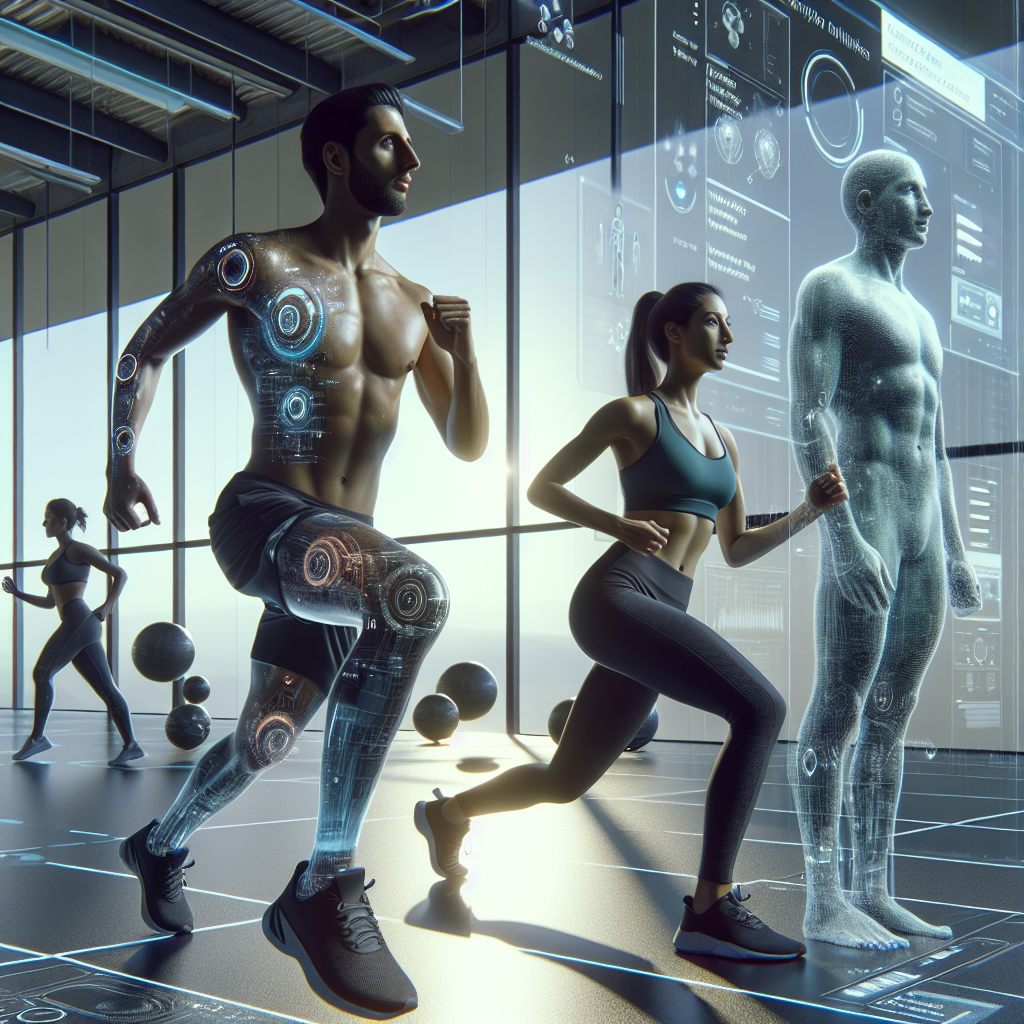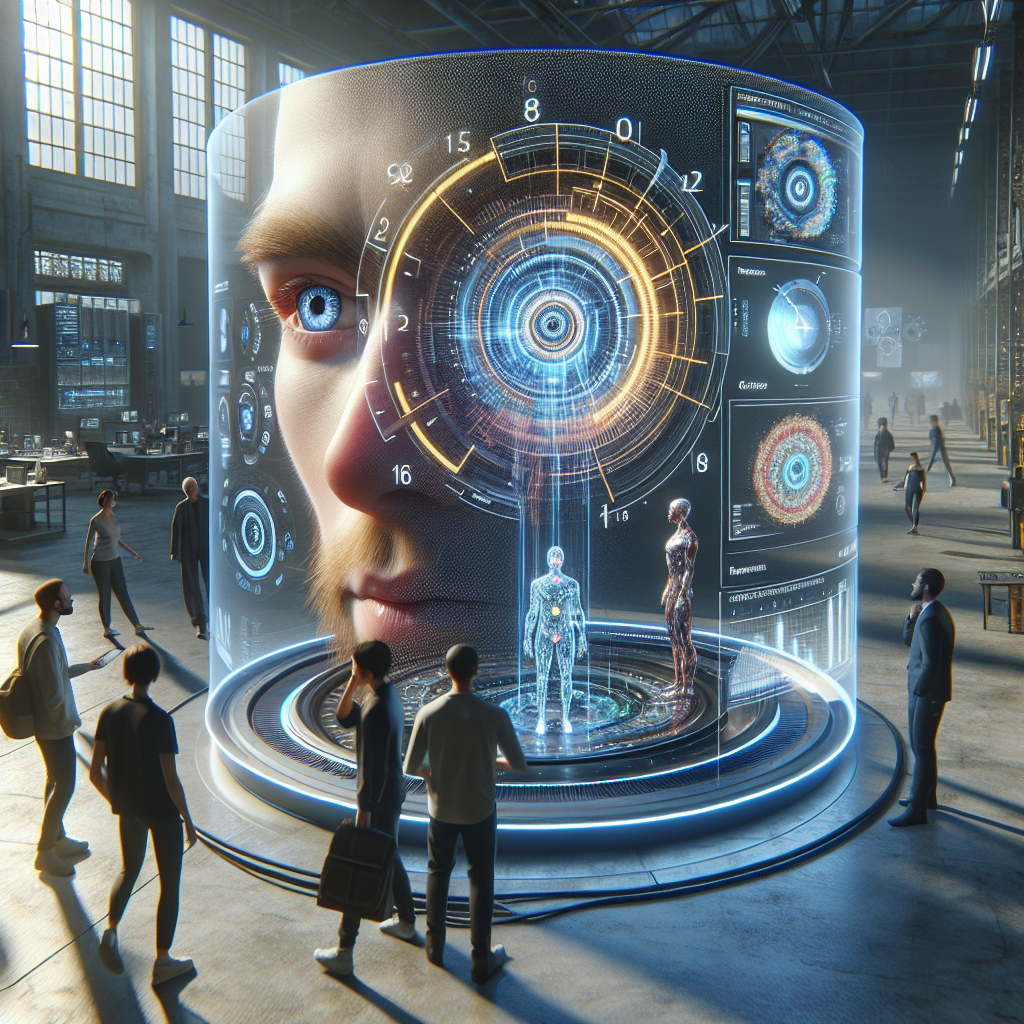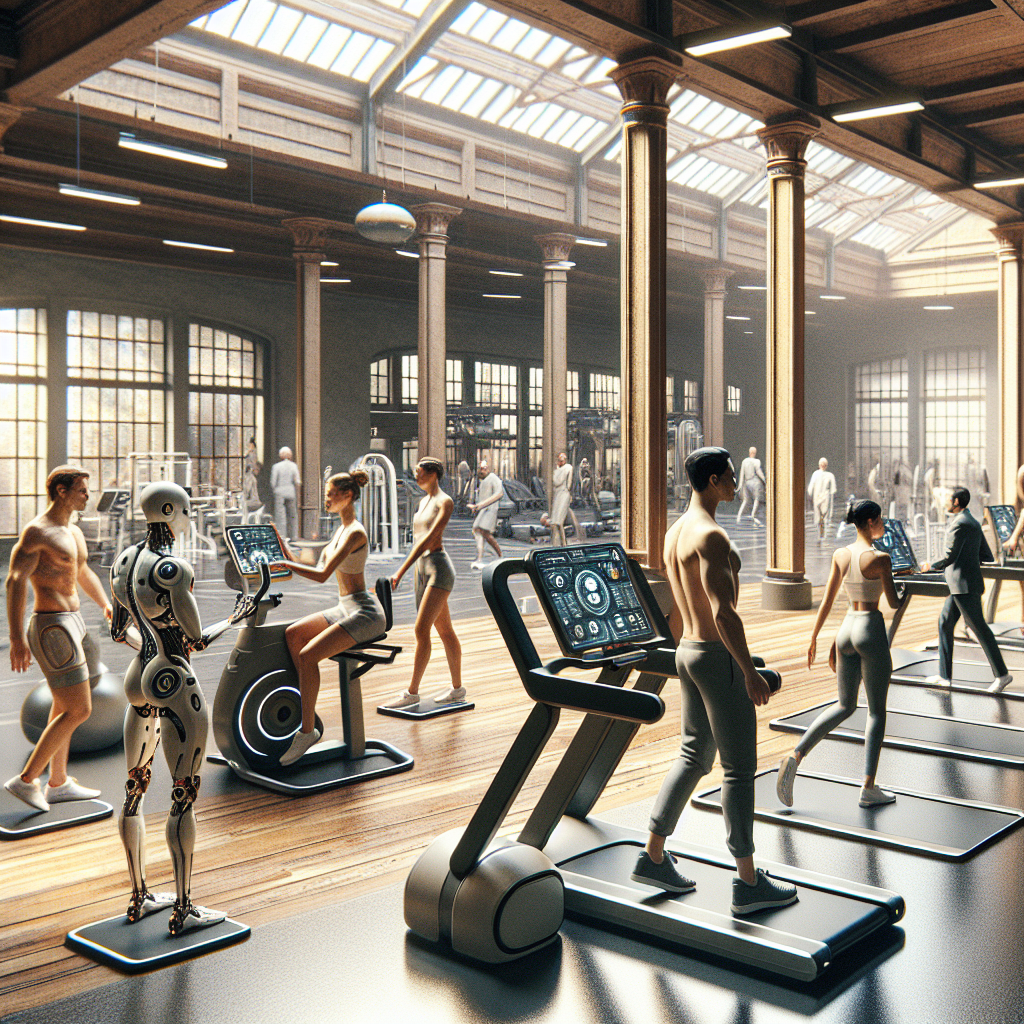Artificial Intelligence (AI) is revolutionizing personalized fitness regimens by providing tailored workout plans, optimizing nutrition, and enhancing motivation through data-driven insights. By harnessing the power of machine learning, natural language processing (NLP), and other AI technologies, the fitness industry is witnessing a significant transformation in how individuals approach their health and wellness goals. This article delves into the various ways AI is reshaping personalized fitness, exploring its benefits, challenges, and future potential in creating bespoke fitness experiences that cater to unique individual needs.
Understanding the Role of AI in Fitness
The integration of AI in the fitness industry is not just a trend but a paradigm shift that is redefining how we perceive and pursue fitness. By leveraging data from wearable devices, fitness apps, and online platforms, AI algorithms can analyze individual health metrics and provide real-time feedback, helping users to achieve their fitness goals more efficiently and effectively.
The Evolution of AI in Fitness
AI’s journey in the fitness industry began with the advent of basic fitness trackers that monitored steps and calories. Over time, advancements in AI technology have enabled these devices to track a multitude of health parameters, such as heart rate variability, sleep patterns, and stress levels. This evolution has paved the way for more sophisticated AI systems capable of offering personalized fitness advice.
From Static to Dynamic Fitness Plans
- Static Plans: Predefined workout routines that do not adapt to individual needs or progress.
- Dynamic Plans: AI-driven plans that adapt based on the user’s performance, preferences, and physiological data.
AI-Powered Fitness Apps
AI-powered fitness apps are at the forefront of personalized fitness regimens. These applications utilize machine learning algorithms to analyze user data, providing tailored workout and nutrition plans that align with personal fitness goals. Key features of AI fitness apps include:
- Customized Workout Plans: AI generates personalized exercise routines based on user preferences and goals.
- Real-time Feedback: Immediate adjustments to workouts based on real-time data, ensuring optimal performance.
- Nutrition Recommendations: AI analyzes dietary habits and recommends meal plans that complement fitness objectives.
How AI Personalizes Fitness Regimens
By analyzing vast amounts of data, AI can create highly personalized fitness regimens that cater to an individual’s unique physiological characteristics and lifestyle preferences.
Data Collection and Analysis
AI systems collect data from various sources, including wearable devices, fitness apps, and health records. This data is then processed to gain insights into the user’s fitness level, health status, and behavioral patterns.
Key Data Points Used by AI
- Biometric Data: Heart rate, blood pressure, and other vital signs.
- Activity Data: Steps taken, calories burned, and exercise duration.
- Sleep Patterns: Quality and duration of sleep.
- Dietary Habits: Caloric intake and macronutrient distribution.
Creating a Personalized Fitness Plan
Once the data is analyzed, AI systems generate customized fitness plans that align with the user’s goals, whether it be weight loss, muscle gain, or improving cardiovascular health.
Components of a Personalized Fitness Plan
- Exercise Recommendations: Tailored workouts that match the user’s fitness level and preferences.
- Nutrition Guidance: Meal plans that support the user’s fitness objectives.
- Progress Tracking: Regular updates on progress, enabling users to stay motivated and on track.
The Benefits of AI in Personalized Fitness
AI offers numerous benefits that enhance the effectiveness and efficiency of personalized fitness regimens, making it an invaluable tool for both fitness enthusiasts and professionals.
Increased Motivation and Accountability
AI-driven fitness platforms often include features that boost motivation and accountability, such as reminders, progress trackers, and social sharing options.
Motivational Features
- Goal Setting: Users can set and track fitness goals with AI assistance.
- Progress Updates: Regular notifications and updates on progress to keep users engaged.
- Community Support: Integration with social media and fitness communities for shared support.
Enhanced Precision and Efficiency
AI provides precise recommendations by analyzing data patterns and adjusting plans accordingly, ensuring users achieve optimal results efficiently.
Efficiency-Boosting Features
- Adaptive Workouts: Exercise routines that adapt based on performance and feedback.
- Time Management: AI suggests optimal workout times based on user availability and energy levels.
- Resource Optimization: Efficient use of available resources, such as gym equipment and time.
Challenges and Limitations of AI in Fitness
Despite its many benefits, the application of AI in personalized fitness regimens is not without challenges and limitations.
Data Privacy Concerns
With the collection of personal health data, there are significant privacy and security concerns that need to be addressed.
Privacy Challenges
- Data Security: Ensuring user data is securely stored and transmitted.
- Consent Management: Obtaining explicit user consent for data collection and use.
- Transparency: Clearly communicating how data is used and protected.
Technical Limitations
AI systems can sometimes struggle with the complexity and variability of human physiology and behavior.
Technical Challenges
- Data Quality: Inaccurate or incomplete data can lead to suboptimal recommendations.
- Algorithm Bias: AI models may exhibit bias if not properly trained on diverse datasets.
- Integration Issues: Difficulty in integrating AI solutions with existing fitness infrastructure.
The Future of AI in Personalized Fitness
As technology continues to advance, the future of AI in personalized fitness looks promising, with opportunities for further innovation and improvement.
Emerging Technologies and Trends
Several emerging technologies and trends are poised to enhance the capabilities of AI in fitness.
Future Innovations
- Wearable Technology: Next-generation wearables with enhanced sensors for more accurate data collection.
- Virtual and Augmented Reality: Immersive fitness experiences that combine AI with VR/AR technologies.
- AI Coaches: Virtual coaches powered by AI that provide real-time guidance and support.
Opportunities for Growth
There are numerous opportunities for growth and expansion in the AI-powered fitness industry.
Growth Opportunities
- Market Expansion: Increasing adoption of AI fitness solutions in emerging markets.
- Collaboration: Partnerships between tech companies, fitness brands, and healthcare providers.
- Personalization: Greater emphasis on hyper-personalized fitness experiences tailored to individual needs.
Conclusion
AI is undeniably transforming personalized fitness regimens by providing tailored solutions that enhance motivation, precision, and efficiency. While there are challenges to overcome, the potential benefits and future advancements in AI technology hold great promise for the fitness industry. By embracing these technological innovations, individuals can achieve their fitness goals more effectively, leading to improved health and well-being.
Transform Your Fitness Journey Today
Experience the Future of Fitness with PurelyFit
Say goodbye to costly trainers and confusing diet plans. Dive into a smarter, personalized fitness journey with AI-driven workouts and nutrition tailored just for you. Whether you’ve tried everything before or are just starting, PurelyFit is your key to achieving your fitness goals faster. Access over 600,000 recipes and enjoy real-time progress tracking with adaptive plans. It’s time to revolutionize your fitness journey—join PurelyFit now and unleash the healthier, fitter you!













